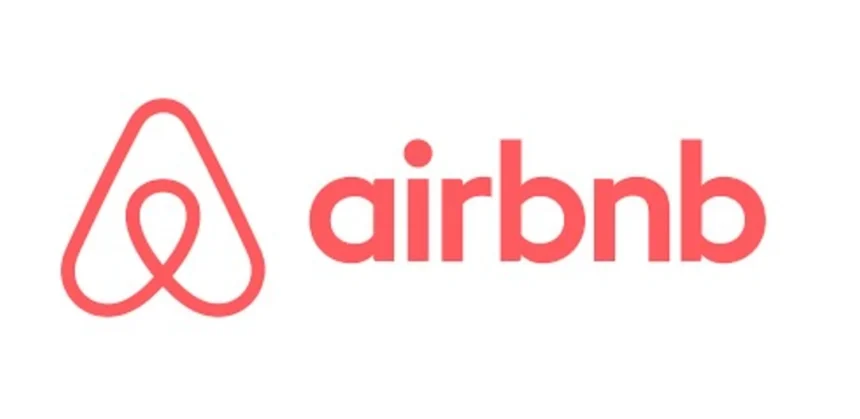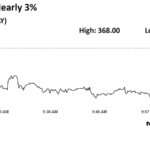Did you know that Airbnb, which started in 2008 as a simple idea for short-term and long-term homestays, now offers more than 7 million listings across over 220 countries and regions? This remarkable expansion showcases how Airbnb has transformed the global hospitality industry.
Introduction
Airbnb is an online marketplace that connects people who want to rent out their property with people who are looking for accommodations, typically for short stays. Airbnb offers hosts a relatively easy way to earn some income from their property. Guests often find that Airbnb rentals are cheaper and homier than hotels. Airbnb makes the bulk of its revenue by charging fees to both guests and hosts.
This article aims to explore the multifaceted journey of Airbnb, analyzing its business model, market influence, regulatory challenges, and future prospects.
History and Background
In 2008, Brian Chesky, Nathan Blecharczyk, and Joe Gebbia founded the company that is now Airbnb. The idea started when Chesky and Gebbia rented out air mattresses in their San Francisco apartment to visitors attending a conference, leading to the original name “Airbed & Breakfast.”
By 2009, the company rebranded as Airbnb and expanded its offerings from just air mattresses to include spare rooms, apartments, entire houses, and more. Its operations also grew internationally. By 2011, Airbnb had opened an office in Germany, and in 2013, it set up its European headquarters in Dublin, Ireland. The company’s main office remains in San Francisco.

Airbnb has since established a presence in over 220 countries and regions, including Australia, Asia, and Cuba. It has also expanded its services to include local activity programs called Experiences.
In 2020, Airbnb introduced the Frontline Stays program to provide lodging for first responders during the COVID-19 pandemic. That same year, the company went public and its stock began trading on the Nasdaq exchange under the symbol ABNB.
Financial Performance of Airbnb
As of May 2024, Airbnb has a market cap or net worth of $93.99 billion. Its market cap has increased by 35.69% in one year.
The company has raised significant amounts of funding from various investors over the years:
- April 2009: Received $600,000 in initial funding from Sequoia Capital, with participation from Youniversity Ventures partners.
- November 2010: Raised $7.2 million in Series A funding from Greylock Partners and Sequoia Capital.
- July 2011: Secured $112 million from Andreessen Horowitz, Digital Sky Technologies, General Catalyst, and A
- Grade Investments (including Ashton Kutcher and Guy Oseary).
- April 2014: TPG Capital invested $450 million, valuing the company at $10 billion. Additional investments came from Andreessen Horowitz, Sequoia Capital, Dragoneer Investment Group, T. Rowe Price, and Sherpa Capital.
- June 2015: Raised $1.5 billion from General Atlantic, Hillhouse Capital Group, Tiger Management, and others.
- September 2016: Google Capital and Technology Crossover Ventures invested $555.5 million, valuing the company at $30 billion.
- March 2017: Raised $1 billion, bringing total funding to over $3 billion and valuing the company at $31 billion.
- April 2020: Silver Lake and Sixth Street Partners bought $1 billion in shares at an $18 billion valuation and provided $1 billion in debt with interest rates of 9%–11.5%.
Business Model
Airbnb operates an online marketplace that connects individuals who want to rent out their properties with those seeking accommodations. The platform facilitates peer-to-peer property rental transactions, offering a wide range of lodging options including spare rooms, apartments, entire houses, and unique stays such as treehouses and castles. Users can list their properties, set their prices, and communicate directly with potential guests through Airbnb’s website and mobile app.
Revenue Streams
Airbnb generates revenue through several key channels:
- Airbnb charges a service fee to both guests and hosts. Guests typically pay a fee of around 14.2% of the booking subtotal, while hosts are charged a fee of 3% of the booking subtotal. Additionally, Airbnb charges a service fee on bookings for “Experiences”, which are activities hosted by local experts. The company also offers “Airbnb for Work“, which caters to business travelers and companies, providing tailored solutions for corporate lodging and team-building activities.
- Airbnb earns revenue through bookings and service fees in this segment. Furthermore, through its Airbnb Luxe and Airbnb Plus offerings, the company provides high-end, verified listings and luxury experiences, which come with higher service fees.
Market Analysis
It is no secret that Airbnb has seen staggering growth since its founding. These days, there are over 5 million Airbnb hosts renting out properties all over the world. Meanwhile, in 2023, over 448 million Airbnb nights and experiences were booked. This was almost double the number of bookings of five years ago.
The total revenue of Airbnb worldwide reached $9.92 billion U.S. dollars in 2023. This was an increase over the previous year’s total of $8.4 billion. The decrease in revenue in 2020 can be attributed to the coronavirus (COVID-19) pandemic, which caused travel disruption across the globe. When breaking down Airbnb revenue by region, North America, where Airbnb was founded, brought in the most revenue in 2022.
Its largest market is in North America, where the gross booking value per night was approximately $240.29 in 2022, the highest among all regions. In contrast, Latin America had the lowest gross booking value per night, and on average, travelers in this region stayed more nights with Airbnb compared to those in the Asia Pacific region.
The COVID-19 pandemic impacted the travel and tourism industry worldwide, with many countries initiating stay at home orders or travel bans to prevent the spread of the virus. In addition to a decrease in revenue in 2020, the company also experienced a reduction in the number of nights and experiences booked with Airbnb.
In 2023, Airbnb reported over 448 million booked nights and experiences, a significant increase over the previous year.
Financial Performance
Airbnb ended 2023 with another strong quarter.
In Q4 2023, the revenue was $2.2 billion, a 17% increase compared to last year. The revenue growth was driven by a solid increase in Nights and Experiences Booked, a modest rise in Average Daily Rate (ADR), and a favorable impact from foreign exchange rates.

“2023 was another incredible year for Airbnb. Our Host community surpassed 5 million for the first time, we delivered nearly 200 new upgrades to our core service, and we ended the year with our highest-ever number of global active listings.” – Brian Chesky, Co-Founder and CEO Of Airbnb
In Q4 2023, the company reported a net loss of $349 million, largely due to one-time tax expenses totaling around $1 billion. Excluding these, the Adjusted Net Income was $489 million, up from $319 million in Q4 2022, driven by revenue growth, controlled expenses, and interest income. The Adjusted Net Income Margin increased to 22% from 17% in the same quarter the previous year.
Related: DoorDash – Company Analysis, Net worth, History, Success, Yearly Revenue
User Base
Airbnb’s user base is diverse, targeting a wide range of demographics.
The primary users of Airbnb are leisure travelers who are looking for unique, affordable, or alternative accommodations compared to traditional hotels. This includes solo travelers, couples, families, and groups of friends.
On the other hand, hosts are individuals or businesses with space to rent out. They range from homeowners with spare rooms to property managers with multiple listings. Airbnb also caters to business travelers through Airbnb for Work, providing accommodations for professionals on business trips.
The platform is especially appealing to younger travelers, such as millennials and Gen Z, who appreciate unique and personalized travel experiences. However, it also attracts older demographics, including families and retirees, who seek comfortable and often more spacious lodging options than traditional hotels.
Future Prospects
Airbnb is focusing on increasing the number of hosts on its platform. In the fourth quarter, the number of hosts globally surpassed 5 million, with active listings reaching over 7.7 million, an 18% year-over-year increase. Hosts earned over $57 billion in 2023. In 2024, Airbnb plans to continue promoting hosting and improving the host experience.
Over the past three years, Airbnb has introduced over 430 new features and upgrades to make hosting more affordable and reliable. This has resulted in a 36% decrease in host cancellations in Q4 2023 compared to Q4 2022, and two-thirds of hosts now offer weekly or monthly discounts. Airbnb will continue to enhance service quality and reliability in 2024 based on community feedback.
Airbnb has completed refining its core service and is now focusing on expansion. They are investing in untapped international markets such as Germany, Brazil, Korea, Switzerland, Belgium, and the Netherlands, with promising results. Additionally, they are planning to venture beyond their core business and reinvent Airbnb, with details expected later in 2024.
Conclusion
Airbnb has had a significant impact on travel by providing affordable accommodations and income opportunities for property owners. However, its success has led to increased competition and calls for stricter regulation due to concerns about its effects on local businesses and communities, potentially limiting travel in certain areas.
In the hotel industry, Airbnb’s growth has led to reduced bookings and income for traditional hotels, causing some to lower rates and offer more amenities to remain competitive. Additionally, hotels are increasingly listing their spaces on Airbnb.
While Airbnb rentals have increased tourism income in some neighborhoods, they have also brought challenges such as noise and overcrowding, prompting regulatory responses from municipalities. Critics argue that Airbnb exacerbates housing shortages and drives up rental prices in some cities.









